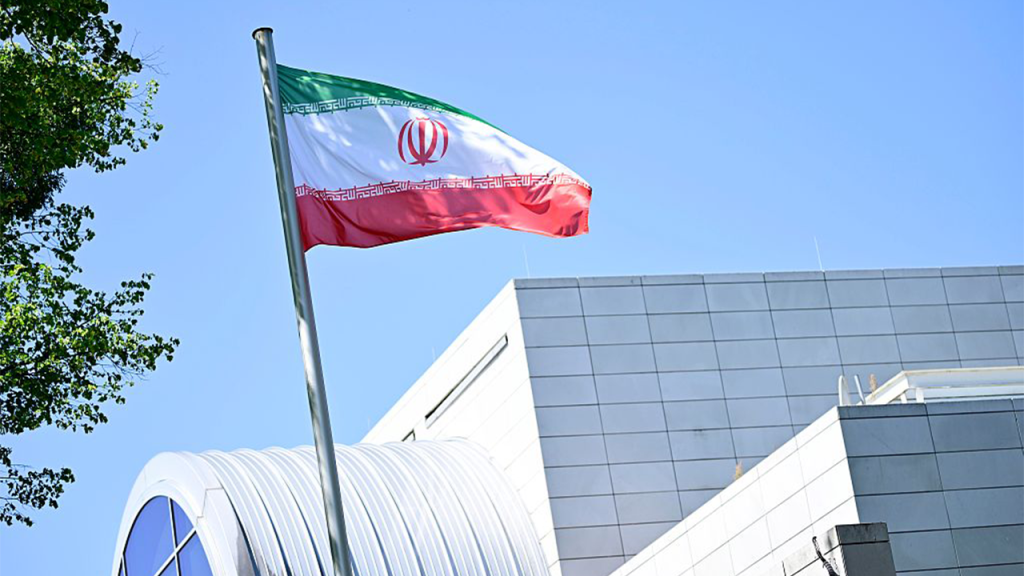A recent arrest in Denmark has brought to light serious allegations of espionage involving a Danish national, identified only as Ali S.. He is accused of gathering intelligence on Jewish targets in Berlin for Iranian authorities. As tensions escalate between Iran and its adversaries, this incident raises significant concerns about threats against Jewish communities across Europe.
| Article Subheadings |
|---|
| 1) Arrest Details and Allegations |
| 2) Implications for Jewish Safety in Germany |
| 3) Reactions from Officials and Authorities |
| 4) Iran’s Response to the Allegations |
| 5) Next Steps in Legal Proceedings |
Arrest Details and Allegations
The alleged espionage accomplice, Ali S., was apprehended on Thursday in Aarhus, Denmark. Under the directive of an Iranian intelligence service, he reportedly gathered information about Jewish locales and specific individuals within Berlin. Prosecutors disclosed that these activities were purportedly conducted in June, indicating a potential preparatory phase for subsequent operations, which could include terrorist attacks aimed at Jewish targets.
Law enforcement emphasized that the suspect’s actions fall under serious national security violations, particularly given the historical context of Jewish persecution. The information gathered involved key sites such as the headquarters of the German-Israeli Society and an address associated with Josef Schuster, the President of the Central Council of Jews in Germany.
Implications for Jewish Safety in Germany
The arrest brings heightened fears regarding the safety of Jewish communities in Germany. Following the recent conflict between Israel and Iran, there have been intensified calls for heightened security measures in Jewish-dense areas. The German government’s proactive response underscores the potential risk of retaliatory measures by Iranian operatives against Jewish individuals and sites within its borders.
German security authorities have reportedly increased protective measures around important Jewish institutions in light of the allegations against Ali S.. This includes places of worship and cultural centers, signifying an urgent need to counter any Iranian-sponsored threats. The complex nature of Iran’s foreign operations raises alarms about future incidents, compelling Jewish organizations to insist on rigorous security protocols.
Reactions from Officials and Authorities
German officials have reacted sharply to these allegations. German Foreign Minister Johann Wadephul, after visiting a synagogue in Odesa, remarked, “If this suspicion were confirmed, it would be an outrageous incident that would once again demonstrate that Iran is a threat to Jews all over the world.” Such statements reflect the widespread concern within the government about the vulnerability of Jewish communities amidst rising geopolitical tensions.
The Iranian Ambassador to Germany, Majid Nili Ahmadabadi, faced summoning to the German Foreign Ministry as protests against the reported espionage unfolded. He dismissed the accusations as “unfounded and dangerous,” implying that these claims may be a strategic diversion from other global issues — notably, recent Israeli strikes on Iranian assets.
Iran’s Response to the Allegations
The Iranian Embassy in Berlin vehemently denied the allegations, labeling them as baseless and indicative of an ongoing agenda to misrepresent Iran. The embassy’s statement emphasized that previous conversations with German authorities had revealed attempts by third parties to manipulate public perception regarding these events.
This response from Iran seeks to downplay the severity of the allegations, framing them within the broader context of geopolitical dynamics as the regime navigates heightened scrutiny and concerns over its operational tactics abroad. Officials in Iran may be attempting to deflect attention from the actions of its operatives by suggesting ulterior motives behind the accusations.
Next Steps in Legal Proceedings
Following the arrest, Ali S. is set to be extradited to Germany, where he will face judicial proceedings. German prosecutors indicated that the suspect will be presented to an investigating judge of Germany’s Federal Court of Justice shortly after being moved from Denmark.
The legal ramifications for Ali S. depend on the evidentiary basis established against him during the extradition process. With Danish national security and intelligence services currently overseeing his custody until July 23, they remain poised to facilitate a smooth transition of the suspect to German authorities. The case is likely to attract attention as it progresses through the legal system, reflecting broader concerns regarding international espionage and terrorism.
| No. | Key Points |
|---|---|
| 1 | A Danish national was arrested for allegedly gathering information on Jewish targets in Berlin for Iranian intelligence. |
| 2 | The suspect is accused of planning further activities that could threaten Jewish individuals in Germany. |
| 3 | German authorities have increased security measures around Jewish institutions in response to the arrest. |
| 4 | Iran’s embassy has denied the allegations, suggesting they are part of a broader effort to mislead the public. |
| 5 | Legal proceedings for the suspect will commence following his extradition to Germany. |
Summary
The arrest of Ali S. in Denmark, accused of espionage for Iran, is a pivotal event that underscores ongoing threats to Jewish communities in Germany. The alleged planning of dangerous activities highlights the broader implications of geopolitical tensions and the actions of foreign agents on European soil. As authorities ramp up security measures and legal proceedings advance, the situation reveals an urgent need for vigilance in combating such threats.
Frequently Asked Questions
Question: Who is Ali S. and what are the allegations against him?
Ali S. is a Danish national suspected of gathering intelligence on Jewish targets in Berlin for Iranian intelligence services. He allegedly took photos and planned further activities that could jeopardize the safety of Jewish individuals.
Question: What security measures are being implemented in response to the situation?
In light of the arrest, German authorities have heightened security around Jewish institutions, including synagogues and cultural centers, to safeguard against any potential threats stemming from Iranian operatives.
Question: How has Iran responded to the allegations against Ali S.?
Iran’s embassy in Berlin has vehemently denied the accusations, calling them unfounded and suggesting they are an attempt to divert attention from other political matters. The Iranian government claims the allegations serve as a form of manipulation against it.


